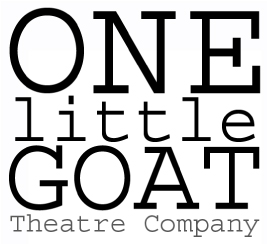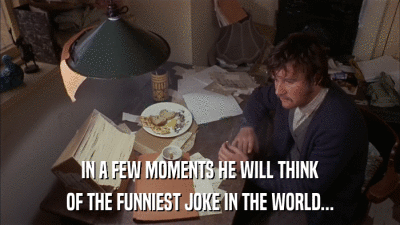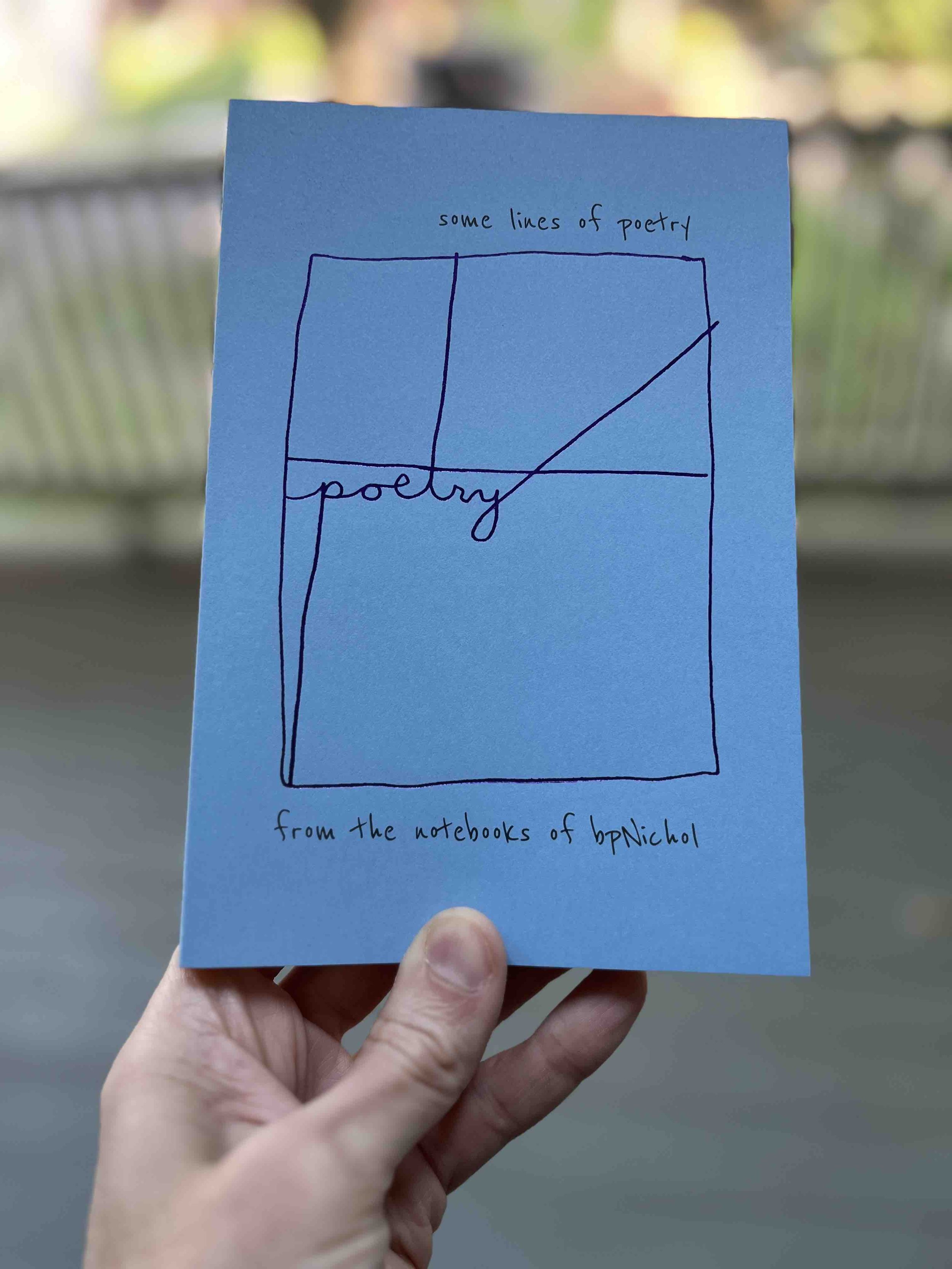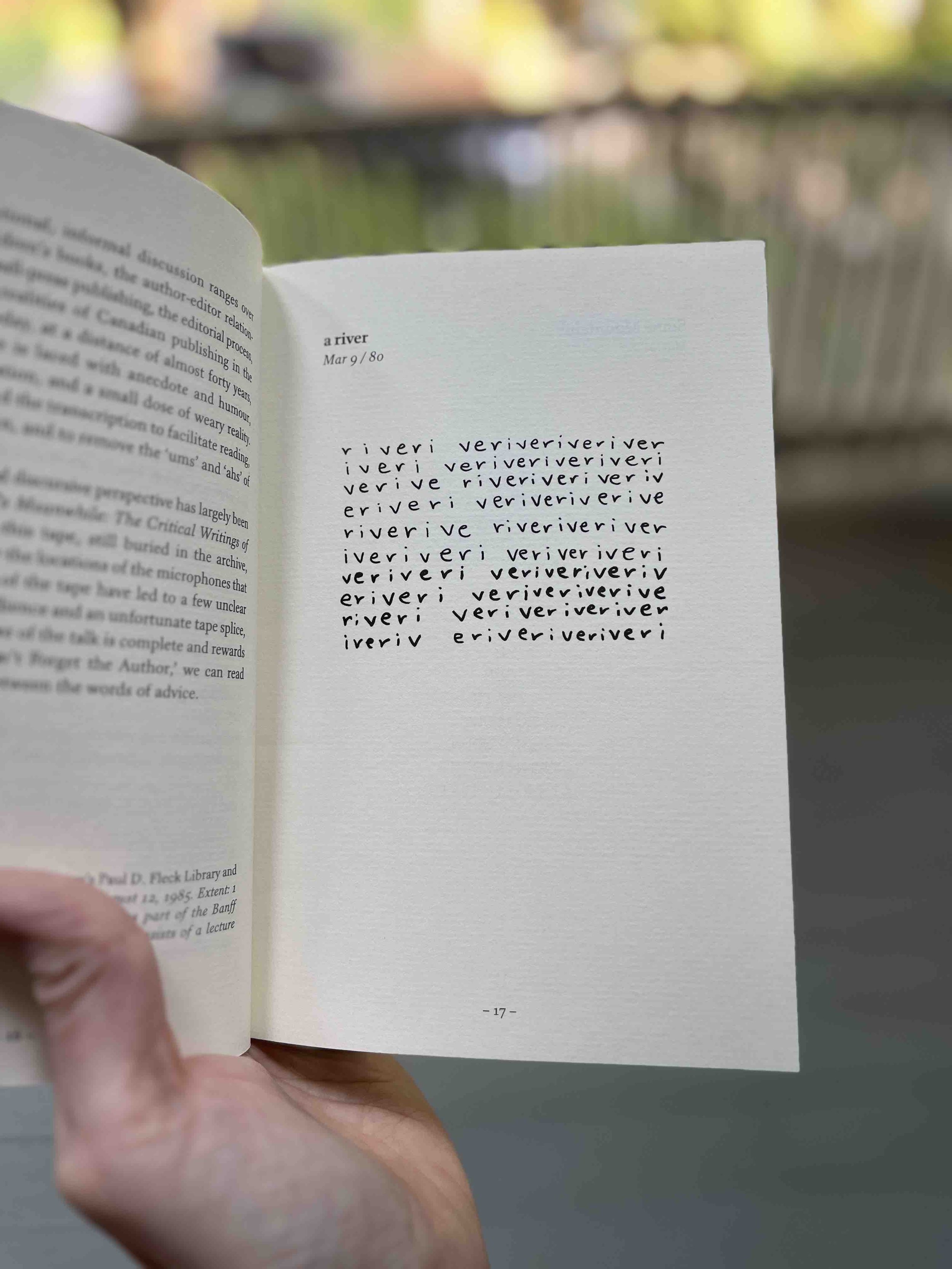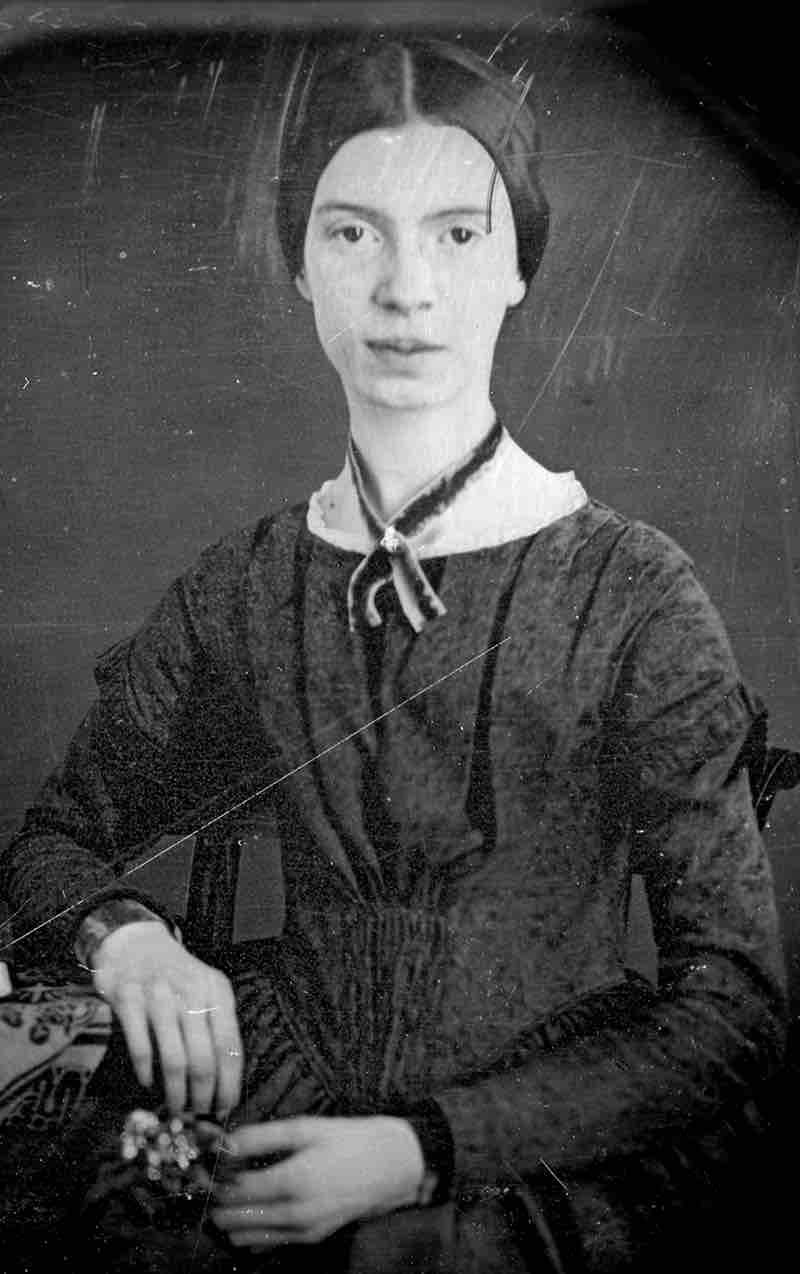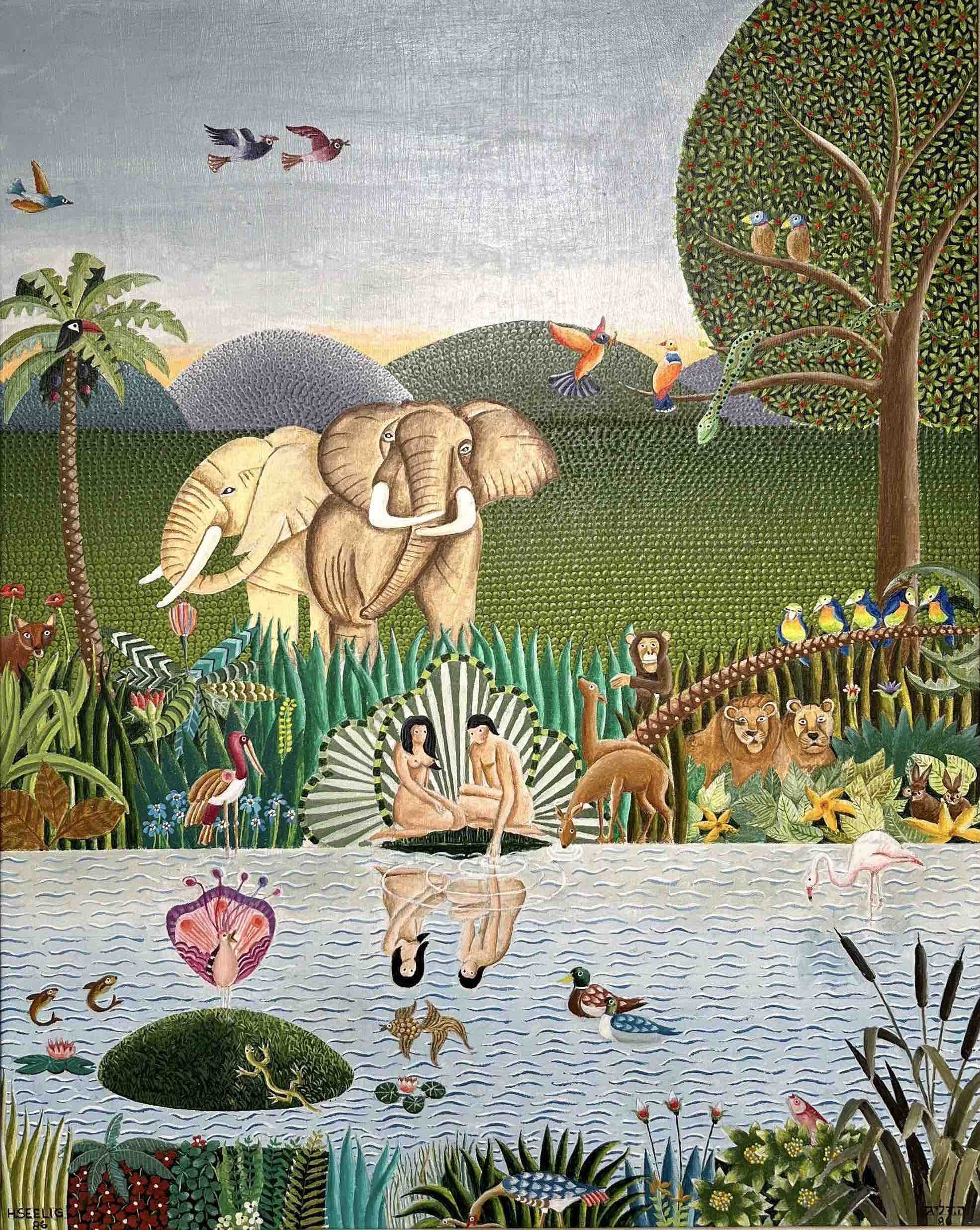JAMES JOYCE’S FINNEGANS WAKE
Episode 015: 111 INSULTS
PAGE 69:5-74:19 | END OF CHAPTER 3 | 2025-02-06
PODCAST AUDIO
PODCAST TRANSCRIPT
[Music: Richard Harte sings “The Ballad of Persse O’Reilly” from Finnegans Wake]
Have you heard of one Humpty Dumpty
How he fell with a roll and a rumble
And curled up like Lord Olofa Crumple
By the butt of the Magazine Wall
[Music fades out]
Adam Seelig: Welcome to James Joyce’s divine and delirious comedy, Finnegans Wake. In this episode, number 15, we’ll hear Irish-Canadian actor — and my good friend and colleague — Richard Harte performing pages 69 to 74 to conclude Chapter 3 of Joyce’s last novel. I’m Adam Seelig, the director of the reading you’ll soon hear.
I’m recording this episode on February 2nd, 2025, James Joyce’s 143rd birthday. Happy birthday!
On the last weekend of March of 2025, the Toronto Irish Film Festival will screen excerpts from our film of Finnegans Wake Chapter 3 at TIFF (the Toronto International Film Festival theatres). We’ll announce the details in early March through our mailing list and on our website: www.OneLittleGoat.org. If you’re in Toronto in late March, come join us.
[Music: Adam Seelig plays piano]
Adam Seelig: Finnegans Wake is a production of One Little Goat Theatre Company. For the next five years, One Little Goat will film and record all 17 chapters (roughly 30 Hours) of Joyce’s Finnegans Wake before live audiences in various locations, screening and releasing them along along the way, with the aim of completing the entire book in time for its 90th birthday, May 4, 2029. One Little Goat Theatre Company is an official charity in Canada and the United States — if you’d like to support our work, please visit us online at www.OneLittleGoat.org to make a charitable donation. And if monetary support is not an option, you can still help this podcast by rating and reviewing it and by spreading the word. To get in touch, you’ll find our email address on the One Little Goat Theatre Company website and we’d love to hear from you.
[Music fades out]
Adam Seelig: To dream is to go beyond yourself. But to go beyond yourself is impossible.
So how about this: To dream is to go — impossibly — beyond yourself.
Through the dream language of Finnegans Wake Chapter 3, our protagonist, HCEarwicker, runs away from confrontation and slander, but ultimately fails, as you’ll soon hear in today’s excerpt, when confrontation and slander come knocking, literally and figuratively, in the form of a newspaper reporter hurling insults and stones at Earwicker’s door.
I want to share a discovery from rehearsal that enabled Richard and me to see the overall gestalt of Chapter 3 in one distilled image. (For those who want to see a drawing that gives the basic idea of the image, I’ve posted a sketch from my production notebook, which you can find in this episode’s transcript on the Podcast page of One Little Goat Theatre Company’s website.) I’ll describe what led us to the image, and then the image itself.
Chapter 3 begins in a cloud, “a poisoning volume of cloud barrage indeed” (48:5), a spit-fog, if you will, produced by the salacious and slanderous “Ballad of Persse O’Reilly” that ended Chapter 2. And since Persse O’Reilly is a Gallicization of Earwicker’s own name — perce-oreille is French for earwig — this toxic cloud that opens Chapter 3 is, perhaps, produced by Earwicker himself. Chapter 3 ends with rain, a rain preceded by its own “cloud barrage” of insults aimed at Earwicker in the form of 111 insults. So the beginning of Chapter 3 is inverted by the end: the fog of slander spat and sprayed out at the start transforms in the end into insults and rain falling on our sleeping protagonist. The toxic cloud in the beginning spreads out to many different people; the rain at the end falls down on only one.
Gestalt of Chapter 3 — production notebook sketch, Adam Seelig.
With this inverted precipitation in mind, the image Richard and I imagined for Chapter 3 looks like this: a man, HCE, spits up and out, only to have it rain down on him. Think of the image as the expectorating version of pissing in the wind. It’s a reminder that every element in this epic fugue that is Finnegans Wake circles and cycles again and again. We are always reading, as the book’s opening line tells us, “a commodius vicus of recirculation” (3:2, Ep002).
How could Earwicker ever escape the slander that hounds him when that slander may very well have issued from Earwicker himself? As the Bob Marley song we discussed at the beginning of Chapter 3 puts it (Ep011): “You’re running and you’re running and you’re running away/ But you can't run away from yourself.” Or to borrow a beloved phrase of my parents’ generation, often attributed to Rod Serling’s TV series, The Twilight Zone: “We have met the enemy, and the enemy is us.” Maybe Earwicker, ultimately, is his own worst enemy.
At the start of Chapter 3 (Ep011), we asked if Earwicker is purely victim or if he is also victimizer? My sense is that he’s both.
True, he’s hard to identify at times, especially when, as this chapter warns us early on, “the shape of the average human cloudyphiz […] frequently altered its ego with the possing of the showers […]. Whence it is a slopperish matter, given the wet and low visibility […] to idendifine the individuone” (50:36-51:6, Ep011). But identify him we have, and his name is HCEarwicker. There’s no escaping that.
Phoenix Park pubs: Hole in the Wall in the north, Mullingar House in the south.
In his final, futile attempt to escape slander and confrontation at the end of Chapter 3, Earwicker locks himself up in a pub near Dublin’s Phoenix Park, although this time, rather than the Mullingar House on the south side of the park, which we usually associate with HCE and his family, it appears to be the Hole in the Wall Pub on the north side of the park, as the second sentence of today’s excerpt indicates. This sentence also has a once-upon-a-time ring to it that echoes the opening line of Joyce’s A Portrait of the Artist as a Young Man: “There was once upon a wall and a hooghoog wall a was and such a wall-hole did exist” (69:6-8).
The very first sentence that opens today’s excerpt sets the stage for Earwicker locking himself away and for the confrontational scene that unfolds soon after — it begins, “Now by memory inspired […]” (69:5). “By Memory Inspired” is an Irish Ballad that pays tribute to heroes who died in the Irish Rebellion of 1798, suggesting confrontation; it also influenced W. B. Yeats’s poem “September 1913,” which readers often relate to Ireland’s labour strike of the same year known as the “Dublin lock-out.”
In our case, Earwicker, having fortified the pub’s front gate, is locked in, and his assailant, a version of the Cad from the first confrontation in Chapter 2 (Ep008), is locked out. The attacker is a German newspaper reporter, Herr Betreffender (69:32), who bangs on Earwicker’s gate for a couple of reasons: first, because he’s writing a story on the central theme of our novel, the fall of humanity, or in the Wake’s own words, Betreffender is “making his reporterage on Der Fall Adams” (70:4-5), and Earwicker certainly personifies that fall; the second reason, arguably more urgent, is that Betreffender badly needs a drink, even though it’s ten in the morning, threatening to pummel Earwicker if he doesn’t serve him alcohol right away (69:27-35). Betreffender even blows some quaker oats through Earwicker’s keyhole in an effort to get his attention (70:18-19), but to no avail, so he ratchets up his assault by unleashing an exhaustive litany of 111 insults against our protagonist. The indignant and undignified list of epithets is a blast, and I won’t spoil it for you; I’ll just mention that my favourite insult is also the audience’s favourite, as you’ll soon here from their laughter, and I’ll hint that, for those also peeking at the page, it’s a one-word insult beginning with the letter A that you’ll find on line 21 of page 71. Enjoy.
Following this offensive barrage, Betreffender adds injury to insult by by chucking some stones at Earwicker’s pub/fortress (72:27).
And there. The siege is over: “came to close that last stage in the siegings round our archicitadel” (73:23-24). Earwicker is finally by himself. As he settles into sleep, the dream language of Finnegans Wake conjures up an image of our protagonist as a hero returning — quite the opposite of the fleeing fraidy-cat we’ve been following until now — in words that invoke the title of our book: “(some Finn, some Finn avant!), he skall wake from earthsleep […] (lost leaders live! the heroes return!)” (74:1-3). This also invokes the Irish nationalist slogan, “Sinn Féin, Sinn Féin Amháin,” meaning “Ourselves, Ourselves Alone,” and Earwicker is indeed himself alone, at least until he is visited, à la Genesis, by God in an exchange reminiscent of Biblical dialogue between the Almighty and Abraham. In Wake-speak, Abraham becomes “Allprohome,” with “All” spelled A-L-L, as in Everyone, a fitting pseudonym for our multifarious protagonist HCE, also known as Here Comes Everybody. Here, in this second to last paragraph of Chapter 3, God’s voice disturbs Earwicker’s sleep, and Earwicker responds grumpily in Latin: “Animadiabolum, mene credidisti mortuum?” (74:8) which translates to, “Soul to the devil, did you believe me dead?”, a riff on the last line of the “Finnegan’s Wake” folk song that gives our book its title (Ep001): “By the thunderin’ Jaysus do you think I’m dead?” It reminds me of the irreverent exchange in History of the World, Part I (1981) between Mel Brooks as Moses and the Voice of God. In the movie, God calls down to his prophet in a booming, reverberant voice: “Do you hear me?” And Moses responds, “Yes, I hear you, I hear you,” followed by a short sharp kvetch under his breath: “A deaf man could hear you.”
Neither deaf nor dead, Earwicker is sleeping deeply. And now the rain falls, the rain that began this chapter in the latent form of cloud and fog, as HCE’s extremities seem to morph into Dublin itself, extending to four districts of the city: Finglas in the north west, Pembroke in the south east, Kilmainham in the south west, and Baldoyle in the north east — plus a fifth district, Rathfarnham, located south of them all. This last paragraph of Chapter 3 is, quite simply, a beauty. I hope you enjoy it as much as I do.
“…his extremeties extremely so: Fengless, Pawmbroke, Chilblaimend and Baldowl. Humph is in his doge. Words weigh no no more to him than raindrips to Rethfernhim.” (74:15-17)
So in Chapter 3 our protagonist reacts to slander — however real or perceived, however externally or internally generated — with more flight than fight, and now, at the end, with the third F-response to threats: by freezing, or more specifically, by sleeping.
Our fallen man has fallen asleep at the edge of Phoenix Park, where perhaps (and we can never say perhaps too often with Finnegans Wake, the ultimate book of possibilities), where perhaps, like the Phoenix itself, he will rise again.
Now it’s time for Richard’s performance of James Joyce’s Finnegans Wake, page 69 line 5 to page 74 line 19 for the conclusion of Chapter 3.
The performance was shot and recorded at my home in Toronto on October 2, 2023 with a live audience. The film will premiere in March of 2025 at the Toronto Irish Film Festival.
The opening music is my own arrangement of “By Memory Inspired,” referenced in the first sentence of today’s excerpt, with Brandon Bak on drums and Adam Seelig, yours truly, on piano.
[Richard Harte reads and sings Finnegans Wake 69:5-74:19.]
[69] Now by memory inspired, turn wheel again to the whole of
the wall. Where Gyant Blyant fronts Peannlueamoore There was
once upon a wall and a hooghoog wall a was and such a wall-
hole did exist. Ere ore or ire in Aaarlund. Or you Dair's Hair or
you Diggin Mosses or your horde of orts and oriorts to garble
a garthen of Odin and the lost paladays when all the eddams ended
with aves. Armen? The doun is theirs and still to see for menags
if he strikes a lousaforitch and we'll come to those baregazed
shoeshines if you just shoodov a second. And let oggs be good
old gaggles and Isther Estarr play Yesther Asterr. In the drema
of Sorestost Areas, Diseased. A stonehinged gate then was for
another thing while the suroptimist had bought and enlarged
that shack under fair rental of one yearlyng sheep, (prime) value
of sixpence, and one small yearlyng goat (cadet) value of eight-
pence, to grow old and happy (hogg it and kidd him) for the re-
minants of his years; and when everything was got up for the
purpose he put an applegate on the place by no means as some
pretext a bedstead in loo thereof to keep out donkeys (the pig-
dirt hanging from the jags to this hour makes that clear) and just
thenabouts the iron gape, by old custom left open to prevent
the cats from getting at the gout, was triplepatlockt on him on
purpose by his faithful poorters to keep him inside probably and
possibly enaunter he felt like sticking out his chest too far and
tempting gracious providence by a stroll on the peoplade's egg-
day, unused as he was yet to being freely clodded.
O, by the by, lets wee brag of praties, it ought to be always
remembered in connection with what has gone before that there
was a northroomer, Herr Betreffender, out for his zimmer hole-
digs, digging in number 32 at the Rum and Puncheon (Branch of
Dirty Dick's free house) in Laxlip (where the Sockeye Sammons
were stopping at the time orange fasting) prior to that, a Kom-
merzial (Gorbotipacco, he was wreaking like Zentral Oylrubber)
[70] from Osterich, the U.S.E. paying (Gaul save the mark!) 11/- in
the week (Gosh, these wholly romads!) of conscience money in
the first deal of Yuly wheil he was, swishing beesnest with bles-
sure, and swobbing broguen eeriesh myth brockendootsch, mak-
ing his reporterage on Der Fall Adams for the Frankofurto Siding,
a Fastland payrodicule, and er, consstated that one had on him
the Lynn O'Brien, meltoned lammswolle, disturbed, and wider
he might the same zurichschicken other he would, with tosend
and obertosend tonnowatters, one monkey's damages become.
Now you must know, franksman, to make a heart of glass, that
the game of gaze and bandstand butchery was merely a Patsy
O'Strap tissue of threats and obuses such as roebucks raugh at
pinnacle's peak and after this sort. Humphrey's unsolicited visitor,
Davy or Titus, on a burgley's clan march from the middle west,
a hikely excellent crude man about road who knew his Bullfoost
Mountains like a starling bierd, after doing a long dance untidled
to Cloudy Green, deposend his bockstump on the waityoumay-
wantme, after having blew some quaker's (for you! Oates!) in
through the houseking's keyhole to attract attention, bleated
through the gale outside which the tairor of his clothes was hog-
callering, first, be the hirsuiter, that he would break his bulshey-
wigger's head for him, next, be the heeltapper, that he would
break the gage over his lankyduckling head the same way he
would crack a nut with a monkeywrench and, last of all, be the
stirabouter, that he would give him his (or theumperom's or any-
bloody else's) thickerthanwater to drink and his bleday steppe-
brodhar's into the bucket. He demanded more wood alcohol to
pitch in with, alleging that his granfather's was all taxis and that
it was only after ten o'connell, and this his isbar was a public
oven for the sake of irsk irskusky, and then, not easily dis-
couraged, opened the wrathfloods of his atillarery and went on at
a wicked rate, weathering against him in mooxed metaphores
from eleven thirty to two in the afternoon without even a lunch-
eonette interval for House, son of Clod, to come out, you jew-
beggar, to be Executed Amen. Earwicker, that patternmind, that
paradigmatic ear, receptoretentive as his of Dionysius, longsuffer-
[71] ing although whitening under restraint in the sititout corner of
his conservatory, behind faminebuilt walls, his thermos flask and
ripidian flabel by his side and a walrus whiskerbristle for a tusk-
pick, compiled, while he mourned the flight of his wild guineese,
a long list (now feared in part lost) to be kept on file of all abusive
names he was called (we have been compelled for the rejoicement
of foinne loidies ind the humours of Milltown etcetera by Joseph-
ine Brewster in the collision known as Contrastations with Inker-
mann and so on and sononward, lacies in loo water, flee, celestials,
one clean turv): Firstnighter, Informer, Old Fruit, Yellow Whigger,
Wheatears, Goldy Geit, Bogside Beauty, Yass We've Had His
Badannas, York's Porker, Funnyface, At Baggotty's Bend He
Bumped, Grease with the Butter, Opendoor Ospices, Cainandabler,
Ireland's Eighth Wonderful Wonder, Beat My Price, Godsoilman,
Moonface the Murderer, Hoary Hairy Hoax, Midnight Sunburst,
Remove that Bible, Hebdromadary Publocation, Tummer the Lame
the Tyrannous, Blau Clay, Tight before Teatime, Read Your
Pantojoke, Acoustic Disturbance, Thinks He's Gobblasst the Good
Dook of Ourguile, W.D.'s Grace, Gibbering Bayamouth of Dublin,
His Farther was a Mundzucker and She had him in a Growler,
Burnham and Bailey, Artist, Unworthy of the Homely Protestant
Religion, Terry Cotter, You're Welcome to Waterfood, signed the
Ribbonmen, Lobsterpot Lardling, All for Arthur of this Town,
Hooshed the Cat from the Bacon, Leathertogs Donald, The Ace
and Deuce of Paupering, O'Reilly's Delights to Kiss the Man
behind the Borrel, Magogagog, Swad Puddlefoot, Gouty Ghibeline,
Loose Luther, Hatches Cocks' Eggs, Muddle the Plan, Luck before
Wedlock, I Divorce Thee Husband, Tanner and a Make, Go to
Hellena or Come to Connies, Piobald Puffpuff His Bride, Purged
out of Burke's, He's None of Me Causin, Barebarean, Peculiar
Person, Grunt Owl's Facktotem, Twelve Months Aristocrat,
Lycanthrope, Flunkey Beadle Vamps the Tune Letting on He's
Loney, Thunder and Turf Married into Clandorf, Left Boot Sent
on Approval, Cumberer of Lord's Holy Ground, Stodge Arschmann,
Awnt Yuke, Tommy Furlong's Pet Plagues, Archdukon Cabbanger,
Last Past the Post, Kennealey Won't Tell Thee off Nancy's Gown,
[72] Scuttle to Cover, Salary Grab, Andy Mac Noon in Annie's Room,
Awl Out, Twitchbratschballs, Bombard Street Bester, Sublime
Porter, A Ban for Le King of the Burgaans and a Bom for Ye Sur
of all the Ruttledges, O'Phelim's Cutprice, And at Number Wan
Wan Wan, What He Done to Castlecostello, Sleeps with Feathers
end Ropes, It is Known who Sold Horace the Rattler, Enclosed
find the Sons of Fingal, Swayed in his Falling, Wants a Wife and
Forty of Them, Let Him Do the Fair, Apeegeequanee Chimmuck,
Plowp Goes his Whastle, Ruin of the Small Trader, He — —
Milkinghoneybeaverbrooker, Vee was a Vindner, Sower Rapes,
Armenian Atrocity, Sickfish Bellyup, Edomite, — 'Man Devoyd of
the Commoner Characteristics of an Irish Nature, Bad Humborg,
Hraabhraab, Coocoohandler, Dirt, Miching Daddy, Born Burst Feet
Foremost, Woolworth's Worst, Easyathic Phallusaphist, Guiltey-
pig's Bastard, Fast in the Barrel, Boose in the Bed, Mister Fatmate,
In Custody of the Polis, Boawwll's Alocutionist, Deposed, but anar-
chistically respectsful of the liberties of the noninvasive individual,
did not respond a solitary wedgeword beyond such sedentarity,
though it was as easy as kissanywhere for the passive resistant in
the booth he was in to reach for the hello gripes and ring up Kim-
mage Outer 17.67, because, as the fundamentalist explained, when
at last shocked into speech, touchin his woundid feelins in the
fuchsiar the dominican mission for the sowsealist potty was on at
the time and he thought the rowmish devowtion known as the
howly rowsary might reeform ihm, Gonn. That more than
considerably unpleasant bullocky before he rang off drunkishly
pegged a few glatt stones, all of a size, by way of final mocks
for his grapes, at the wicket in support of his words that he was
not guilphy but, after he had so slaunga vollayed, reconnoi-
tring through his semisubconscious the seriousness of what he
might have done had he really polished off his terrible intentions
finally caused him to change the bawling and leave downg the
whole grumus of brookpebbles pangpung and, having sobered
up a bit, paces his groundould diablen lionndub, the flay the
flegm, the floedy fleshener, (purse, purse, pursyfurse, I'll splish
the splume of them all!) this backblocks boor bruskly put out
[73] his langwedge and quite quit the paleologic scene, telling how
by his selfdenying ordnance he had left Hyland on the dissenting
table, after exhorting Earwicker or, in slightly modified phrase-
ology, Messrs or Missrs Earwicker, Seir, his feminisible name of
multitude, to cocoa come outside to Mockerloo out of that for
the honour of Crumlin, with his broody old flishguds, Gog's
curse to thim, so as he could brianslog and burst him all dizzy,
you go bail, like Potts Fracture did with Keddle Flatnose and
nobodyatall with Wholyphamous and build rocks over him, or
if he didn't, for two and thirty straws, be Cacao Campbell, he
didn't know what he wouldn't do for him nor nobody else no-
more nor him after which, batell martell, a brisha a milla a stroka
a boola, so the rage of Malbruk, playing on the least change of
his manjester's voice, the first heroic couplet from the fuguall
tropical, Opus Elf, Thortytoe: My schemes into obeyance for This
time has had to fall: they bit goodbyte to their thumb and, his
bandol eer his solgier, dripdropdrap on pool or poldier, wishing
the loff a falladelfian in the morning, proceeded with a Hubble-
forth slouch in his slips backwords (Et Cur Heli!) in the directions
of the duff and demb institutions about ten or eleven hundred
years lurch away in the moonshiny gorge of Patself on the Bach.
Adyoe!
And thus, with this rochelly exetur of Bully Acre, came to
close that last stage in the siegings round our archicitadel which
we would like to recall, if old Nestor Alexis would wink the
worth for us, as Bar-le-Duc and Dog-an-Doras and Bangen-op-
Zoom.
Yed he med leave to many a door beside of Oxmanswold for
so witness his chambered cairns a cloudletlitter silent that are at
browse up hill and down coombe and on eolithostroton, at
Howth or at Coolock or even at Enniskerry, a theory none too
rectiline of the evoluation of human society and a testament of
the rocks from all the dead unto some the living. Olivers lambs
we do call them, skatterlings of a stone, and they shall be ga-
thered unto him, their herd and paladin, as nubilettes to cumule,
in that day hwen, same the lightning lancer of Azava Arthur-
[74] honoured (some Finn, some Finn avant!), he skall wake from
earthsleep, haught crested elmer, in his valle of briers of Green-
man's Rise O, (lost leaders live! the heroes return!) and o'er dun
and dale the Wulverulverlord (protect us!) his mighty horn skall
roll, orland, roll.
For in those deyes his Deyus shall ask of Allprohome and call
to himm: Allprohome! And he make answer: Add some. Nor
wink nor wunk. Animadiabolum, mene credidisti mortuum?
Silence was in thy faustive halls, O Truiga, when thy green
woods went dry but there will be sounds of manymirth on the
night's ear ringing when our pantriarch of Comestowntonobble
gets the pullover on his boots.
Liverpoor? Sot a bit of it! His braynes coolt parritch, his pelt
nassy, his heart's adrone, his bluidstreams acrawl, his puff but a
piff, his extremeties extremely so: Fengless, Pawmbroke, Chil-
blaimend and Baldowl. Humph is in his doge. Words weigh no
no more to him than raindrips to Rethfernhim. Which we all
like. Rain. When we sleep. Drops. But wait until our sleeping.
Drain. Sdops.
[End of excerpt]
Adam Seelig: That was Richard Harte reading the end of Finnegans Wake Chapter 3, recorded live in Toronto on October 2nd, 2023.
Join us for Episode 16 when Richard begins Chapter 4 of Finnegans Wake. This podcast series is taking a short break between chapters to focus on the film production of future chapters, so please note that the exact date of the next episode’s release is to be determined, and we’ll then resume our fortnightly podcast releases every other Thursday. In the meantime, to be sure you don’t miss the episode, why not follow or subscribe to this podcast? For more on One Little Goat’s Finnegans Wake project, including transcripts of this podcast and the complete film of Chapter 1, visit our website at OneLittleGoat.org. And to hear about upcoming performances and screenings, including the March 2025 screening of Chapter 3 at the Toronto Irish Film Festival, join our mailing list, also on our website.
One Little Goat Theatre Company is a nonprofit, artist-driven, registered charity in the United States and Canada that depends on donations from individuals to make our productions, including this one, possible. If you’re able, please make a tax-deductible donation through our website, www.OneLittleGoat.org
[Music: Adam Seelig plays piano]
Finnegans Wake is made possible by Friends of One Little Goat Theatre Company and the Emigrant Support Programme of the government of Ireland. Thank you for your support!
And thank you to the artists for this episode: Richard Harte; Sound by William Bembridge; Podcast production by Sean Rasmussen; Stage Management by Sandi Becker; Directed by yours truly, Adam Seelig; Music arranged and performed on the piano by me, with Brandon Bak on drums, and recorded at Sound Department in Toronto. A big thanks to our wonderful live audience of Sandi Becker, David Mackett, Andrew Moodie, Cathy Murphy, Nomi Rotbard, Arlo Rotbard-Seelig, Adam Seelig, Aaron Tucker and Catherine Vaneri. Thank you to everyone at the Irish Consulate in Toronto. Thank you to Production Consultants Cathy Murphy and Andrew Moodie and to Music Consultants Warwick Harte and Kevin Kennedy. Thank you for listening!
[Music fades out]
[End of Ep015]
Mentioned: cloud and ‘spit-fog’ at start of Ch03 becomes rain at end, “recirculation,” Bob Marley’s “Running Away,” Twilight Zone ‘the enemy is us,’ Earwicker as his own worst enemy, The Hole in the Wall Pub near Phoenix Park, 1798 Irish Rebellion song “By Memory Inspired,” Dublin lock-out of 1913, HCE locked in his “archicitadel,” muckraker Herr Betreffender, fall of man, Betreffender’s 111 insults, dialogue of God and Abraham/“Allprohome,” Mel Brooks History of the World, Dublin anthropomorphized as HCE’s body, rain, sleep, synopsis.
Resources: Transcript for this episode, including the text of Finnegans Wake.
Finnegans Wake (1939) by James Joyce: there are many free copies of FW to read online or download, e.g. finwake.com
James Joyce Digital Archive, “Chicken Guide” to Finnegans Wake provides a ‘plain English’ paraphrase of each chapter by Danis Rose.
Richard Ellmann’s biography of James Joyce. Oxford University Press, 1982.
Edmund Epstein, A Guide through Finnegans Wake. University Press of Florida, 2009.
Adaline Glasheen, Third Census of Finnegans Wake: An Index of the Characters and Their Roles, University of California Press, 1977.
John Gordon’s annotations on his Finnegans Wake blog.
Roland McHugh, Annotations to Finnegans Wake (4th edition). Johns Hopkins University Press, 2016.
Raphael Slepon, fweet.org
William York Tindall, A Reader’s Guide to Finnegans Wake. Syracuse University Press, 1996.
